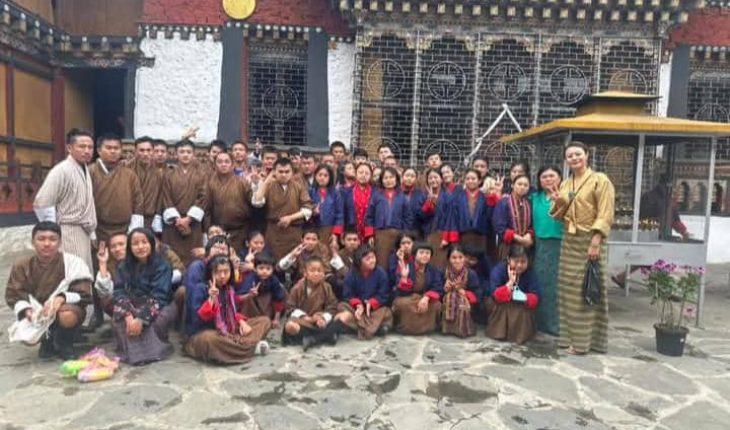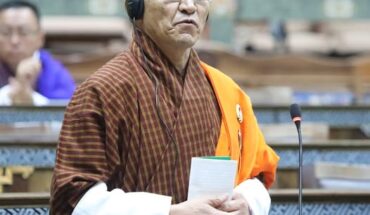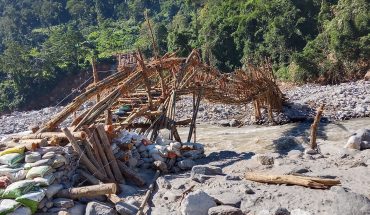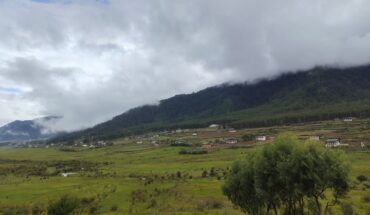
Draktsho Calls for Collective Effort to Build an Inclusive Bhutan
TENZIN LHAKI | Thimphu
More than two decades after its establishment, the Draktsho Vocational Training Center for Special Children and Youth remains Bhutan’s only civil society organization dedicated to vocational training for persons with disabilities.
Founded on October 2, 2001, with the blessings of Her Majesty the Gyalyum Tshering Pem Wangchuck, the center today serves around 150 children and youth across its two campuses in Thimphu and Kanglung, Trashigang.
Draktsho was registered as a Civil Society Organization on November 26, 2010, and functions as a Public Benefit Organization under Bhutan’s CSO Act.
Its mission is to empower children and youth with diverse disabilities through education, skills training, and advocacy, to support their integration into mainstream society.
“The training programs are tailored as per the needs of the students by trained instructors, as regular educational and vocational curriculum are not feasible or inclusive for persons with disabilities,” said Executive Director Deki Zam.
She added that student progress is continuously tracked through monthly meetings and reports.
“Based on their performance, we place them in units more suitable for their skills. After years of training, if the student improves, Draktsho also provides employment opportunities to graduates,” Deki Zam said.
However, despite tremendous achievements, Draktsho faces financial and infrastructure challenges.
“We do have trained professionals; however, it is not enough. We need speech and occupational therapists, and also special educators. This is not only a concern for Draktsho but for the entire nation,” she said.
The ED added that Bhutan has very few trained professionals in the area of disability, and with the increasing number of persons with disabilities, it is a huge concern.
While Draktsho East has its own accessible infrastructure, the Thimphu center struggles with limited space.
Stigma also persists, particularly in rural areas.
She said continued advocacy and awareness programs are necessary across all dzongkhags as these should not be one-time activities.
“Discrimination and stigma remain one of the biggest challenges. Perceptions have improved in urban areas, but rural communities still hold negative views. Attitudinal barriers cannot be changed overnight, but through consistent advocacy, they can be reduced,” she said.
She added that when she joined, she had no idea about disability or how to teach a child with special needs. “It was initially frustrating for me, but that frustration pushed me to pursue further studies.”
She later completed a Master’s degree in Social Work and Disability Studies at the Tata Institute of Social Sciences in Mumbai.
“That academic experience helped me, but what matters more is working with the people themselves and with different stakeholders.
“Being a family member of a person with disability also gives me confidence and courage to help persons with disabilities access services within my capacity,” she said.
Her service at Draktsho, she added, has been “a great journey” that shaped both her personal and professional outlook she said.
Parents of children at Draktsho describe the center’s role as life-changing.
“My child has become more confident and independent. He has learned basic life skills such as cooking, dish washing, clay crafting, and housekeeping, and he enjoys interacting with his friends at the center,” said one parent.
He added that the teachers and trainers are patient and give special attention to each child according to their needs.
Some parents, however, see the need for expanded options.
A parent said it would be helpful if Draktsho could provide more vocational training options, like computer skills or handicrafts, that can be sold in the market.
Concerns about the future also remain. “Society is still not fully inclusive, and at times, people underestimate my child’s abilities” one parent shared.
The organization emphasizes the need for shared responsibility.
Executive Director Deki Zam said being a social worker, helping this vulnerable group is a blessing because having someone in the family motivates her.
“I feel that we, along with all relevant stakeholders, must come together to really push forward to make the lives of persons with disabilities better, enriching, and beautiful. I alone cannot do it—the efforts should come collectively,” Deki Zam said.
She noted Bhutan’s ratification of the UN Convention on the Rights of Persons with Disabilities (UNCRPD) has given further momentum.
“Over the years, I can see positive changes, but I know we can do more and better, especially now that Bhutan has ratified the UNCRPD. My motivation comes from my family, my dedicated staff, and most importantly, the amazing students with diverse abilities,” she said.
Parents also called for greater institutional backing.
“The government should provide funding and facilities, or at least support the faculty financially, as this is a non-government organization with minimal budgeting sources. Society should be more inclusive and create job opportunities for children with disabilities,” a parent said.
As it enters its third decade, Draktsho continues to provide skill-building, advocacy, and opportunities for children and youth with disabilities, with the aim of ensuring that every individual can contribute with dignity and confidence.





